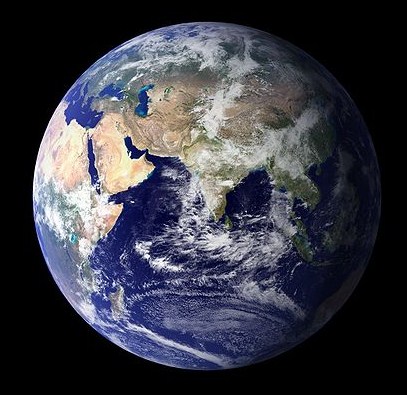Why so much negligence towards Sustainable Environmental Practices?
 India, the traditional hub of the world is always showing the sustainable path for achieving development with less damage incurred to Environment. No doubt we are eating chemicals traditionally, scientifically, chemically and biologically since ‘day one’. But it is ridiculous to learn that in the name of natural items, we are consuming chemicals like preservatives, colours, synthetic materials and different kinds of acids etc., We proudly claim that we are 21st century wizards of technology, yet are in a pathetic situation wherein we consume item and also the items that are being administered in our houses for cleaning, cooking, maintenance etc., in the name of business.
India, the traditional hub of the world is always showing the sustainable path for achieving development with less damage incurred to Environment. No doubt we are eating chemicals traditionally, scientifically, chemically and biologically since ‘day one’. But it is ridiculous to learn that in the name of natural items, we are consuming chemicals like preservatives, colours, synthetic materials and different kinds of acids etc., We proudly claim that we are 21st century wizards of technology, yet are in a pathetic situation wherein we consume item and also the items that are being administered in our houses for cleaning, cooking, maintenance etc., in the name of business.
Human being’s every move is connected to Environment, but without realizing the same we are destructing it. The Green technologies that are used are not cheap. India is known for its “sustainable approach” as manpower was wisely and mostly used for completing different physics tasks. May be this approach increases the work hours, but will certainly provide continuous food for the human and reduces the ‘machine power’. Economically speaking using computers may reduce human interference, but it also requires power. Machines were meant for reducing human interference, but they cannot do small things like digesting food, producing blood, taking care of kids, eating food, automatically giving relief from wounds, producing new skin, producing vital fluids and giving birth to kids etc., like a human body. The process of mechanization is not sustainable and thus we can expect a sooner or later change in this approach.
Combined family concept of India is quiet sustainable. Even though one person earns less, the other will compensate and vice versa. Economically speaking, it is better way of living too. But in today’s nuclear family system, families suffer problems like lack of financial freedom, poverty, theft, social status, lack of nutrition, lack of values, lack of elder’s presence and guidance, unemployment etc. High paid jobs are not the solution as the pressure will be more. Even the husband and wife who are working professionals are admitting after some time, that they are becoming bored with the work and do not know what to do with the money earned!! As they are loosing family values and thus ignoring the children and becoming mechanical. This is another example of diversion took place in the sustainable Indian family system.
Marriage is such a sustainable environmental technology consisting of various concepts related to microbiology, hygiene, food safety, food distribution, chemistry, sociology, economy and psychology and other areas, where in it is being ill treated by simply avoiding the events in it. So many marriages are leading to misunderstandings rather than sustainable living. The family ethics are being followed strictly in our country, that’s why even foreign people are coming to India and getting married. Of course, we as Indians are unable to find time even for getting married as they have become more commercial. In the name of busy schedules and work pressures, we are not giving much preference to the members of family and thus loose the taste of family relations.
The festival of lights was celebrated for victory of Good over Evil. Just because there is availability of light in forests, the sounds were made through bursting crackers. That technology was nicely adopted because there was enough space and the sound waves used to disperse and absorbed by the forest tress and simultaneously scared away the animals which got attracted to the lights. Whereas, the latest technology crackers will make such a high range noise that the vibrations will bombard with the concrete jungles thus leads to resound in these man made ‘jungles’. This process makes such traditional festivals a scaring experience. We shall understand such sustainable festivals in order to respect the Environment.
The traditional distribution of ‘Prasadam’ (food) related to god is a very good and nice sustainable technology being adopted by Indians. The Indian culture is known about sharing and caring of the life forms. Through Rangoli we are trying to feed the ants, through construction of religious structures we are providing shelter for various life forms (both plants and animals) during and after natural calamities. In the form of the deity the rocks and other minerals are being protected. In the name of rituals/pooja we will be cleaning the rocks and other mineral based deities of the God. In the name of God we will go for fasting, we will feed fruits/ food to the cattle, we will distribute our money to others. The distribution of Prasada (food) to everyone is the real meaning Indian culture. If one closely observes the preparation of and distribution of Prasadam or the seed/grain said to be liked by the God is the real technology to make sure that no body dies of hunger. It is also the best technology opted for reducing nutrition related disorders among living organisms. What ever the caste or creed of India, the charity or distribution of food becomes the part of their religion. Even the food will be distributed in the name of god for subsidized price. When ever festive season comes the high calorific valued and most nutritious food will be prepared and will be distributed in order to have better health for everyone, this sustainable practice is there in the culture and tradition of India. Though religious places show some of the business traits, yet it is the way to run the system as the resources there should circulate.
Though we belong to the technological era, we are not offering ‘Pizzas’ and ‘Burgers’ to God. This is because God never wanted these ‘processed’ foods and he always wanted the ‘natural’ products only in their natural form. A coconut, a flower, a twig, fruits in their natural stage and shape etc., The natural items always cost less compared to processed and foreign foods. As the religious places can become shelters to people in distress and during natural calamities thus we can understand that these religious places and offering of food, money, shelter for better sustenance for us. This is a great sustainable way of living with less expenditure!!
Nowadays many synthetic products are coming up in the market for reducing the obesity, healthy living and hygienic living space etc., but we shall not forget that without all these products which are purely ‘chemicals’ our elders lead their lives. The phenols which are used for cleaning out toilets need to be replaced with a better toilet technology, the chemical and high calorific valued food items need to be replaced with indigenous and local and traditional varieties of food grains, the artificial flavours and colours need to be replaced with natural flavours and colours, the fastest devices and super fast computing devices need to be replaced with more use of natural human brains. It is pathetic to understand that even “smell in our own house” is being commercialized with artificial flavoured scents.
The best food is available in packed form, the best water is available in packed/bottled form, the best meat is available in packed form, the best vegetables are available in only costly ‘Malls’ in packed form, the best clothes are available in costly shops like this… we think that only when they are high priced, packed and tagged with some brand names only they are secured. It is pathetic that we are unable to find time to purchase and cook what we want, as foods are available in ready-to-cook or ready-to-eat format. We shall understand that the cooking process in India is a sustainable one and makes the food microbial free and makes it not only delicious but also hygienic and high calorific. But still we are after ‘processed’ foods that are dumped from other countries like cheese, breads, pizzas, burgers, pastas etc., which are not easily digestible. It is a fact that ‘at the end of the day’ we only get satisfied with the traditional food and it only satisfies our hunger.
Because of the food we eat and conditions we live, we are unable to think positively. This is a serious issue to be thought and act of. We shall at least tell the future generation that apart from other pollution and environmental problems, lack of knowledge about the Environmental problems and sustainable Environmental practices is the biggest problems and we shall also see that the traditional knowledge that is given by our elders passed to the next generation so silently just like we are following our traditions and keeping them alive (infact, we are following the scientific procedures behind the culture and traditions and promoting them). Each and every citizen of India should start thinking about the traditional practice and should observe the modernization of the same. As we are loosing human relations, family relations, sensitivity towards pathetic issues and sensitivity towards other life forms (animals and birds), we are prone to loose humanity, so if we can realize and practice sustainability in every part of life, or simply follow the sustainable traditional practices of our elders, it becomes easy for us to become Green human beings. There is no need for spending Crores of rupees or there is no need to place machines to make us happy.
One should understand that the mother earth is silently observing what ever destruction or disturbance that we are creating. We, the human beings feel that we are controlling the Mother Nature, but infact, the Mother Nature is bearing us, bearing our mistakes, but if she thinks for one second to react, that is the end of our era. Mother earth need not do much damage, it can just stop for a while, it can shake itself for few seconds and it can turn towards sun and move a little further (few kilometers), it can stop spinning. So, we can understand that sustainability is in the mother earth, not with our thinking and works. So, make the earth a better place by following sustainable Environmental practices.
So, it can be aptly said that “IT IS BETTER TO ACT BEFORE THE ENVIRONMENT REACTS”
Author’s Bio;
 Dr. Maniprakash Aravelli is Vice Principal and Lecturer in the Department of Environmental Studies at Aditya Degree College, Lakshminarayana Nagar, Kakinada (AP). He can be reached at drmaniprakash@gmail.com.
Dr. Maniprakash Aravelli is Vice Principal and Lecturer in the Department of Environmental Studies at Aditya Degree College, Lakshminarayana Nagar, Kakinada (AP). He can be reached at drmaniprakash@gmail.com.
His views are expressed below;
Everyone of us are living a boring busy scheduled life which quickly becomes mechanical. The only medicine for refreshing is ‘Environment’. Since we get inspired and turn energetic by looking at it and also by learning from it, we shall understand that there are many sustainable things that can be easily followed! Every one of us should understand that this Environment is always trying to help us though we disturb it. There are many hidden messages in the works/ traditions/cultures/festivals of us. It is our bound duty to understand these sustainable practices. Of course, they also give business tricks but at the same time they are sustainable practices. For example, religious place is a hub of activities using natural resources including materials and humans. But at the same time, it becomes a business place as the materials used there should continuously move/cycle. So, to make these facts understand, I tried to give some of the examples that we daily experience. There is still lot of knowledge to be gained from Environment. There is no need to think of only commercial value of Environment, but shall understand that Environment is silently helping us with its sustainable teachings.
Do you have a flair for writing? Interested in environmental issues? Why don’t you submit an article for the GreenCleanGuide 2013 contest? For contest rules, please visit this link



Truely said Dr. Aravelli, its not us controlling the planet, it is mother earth indeed bearing our mistakes. Sustainability is indeed a way of life and has been prevalent in all the ancient civilizations and cultures. The link between culture and environment and leading to a sustainable lifestyle has been beautifully explained in this write up of yours.
Thanks a lot for such an enlightenment.
Hello madam, thank you very much for reading my essay. I feel happy that what I strongly feel about our culture and traditions and the scientific facts inside them are also being felt by people like you. Thank you once again.